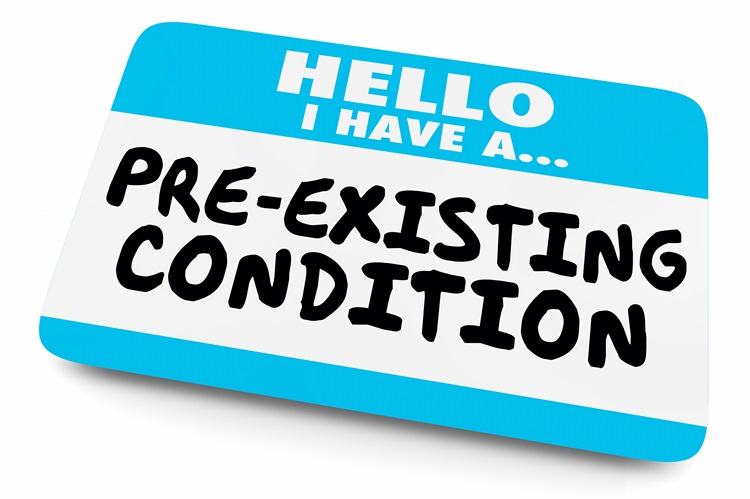How does having pre-existing diseases impact your individual health insurance premiums?
How does having pre-existing diseases impact your individual health insurance premiums?

In today’s times, when health issues and healthcare costs are increasing rapidly, staying covered under an adequate health insurance policy can ensure better financial security and peace of mind. The policy can cover a range of your medical bills and save you from dipping into your savings. However, while an individual health insurance policy offers wide coverage at affordable premiums, you will have to pay higher premiums if you are suffering from pre-existing conditions. Let’s talk about the impact of pre-existing diseases on health insurance premiums.
What is a pre-existing condition?
A pre-existing condition is a disease you got diagnosed with before investing in a health insurance policy. According to the IRDAI, or the Insurance Regulatory and Development Authority of India, a condition diagnosed 48 months before the date of policy issue or reinstatement is termed a pre-existing condition.
Pre-existing conditions mostly include health issues that require long-term and regular treatment, such as asthma, thyroid, high blood pressure, diabetes, kidney disease, and arthritis. These conditions are severe and may require regular monitoring, medication, and care. Thus, insurance companies cover them after a waiting period of up to 3 years and for higher premiums.
Impact of pre-existing diseases on individual health insurance premiums
Covering individuals with pre-existing conditions increases the liabilities of insurance companies. Hence, insurers increase policy premiums to even out associated risks, such as the cost of frequent consultations, treatments, and medication.
The following are some points to keep in mind —
• If you get diagnosed with a disease before buying health insurance, the insurer will consider it a pre-existing condition.
• Insurance companies cover pre-existing conditions, but at higher premiums. However, all health insurance policies may not cover pre-existing conditions.
• The extra premium for covering a pre-existing condition will depend on the disease you are suffering from.
• If your individual health insurance policy covers pre-existing conditions, the insurer will cover all medical expenses related to the condition, including prolonged hospitalisation procedures, associated health complications, etc.
• Although disclosing pre-existing conditions increases health insurance premiums, you must not hide them from the insurer. Hiding your health history at the time of policy purchase can lead to claim rejection in the future.
Tips to choose an affordable individual health insurance policy covering pre-existing conditions
If you are suffering from a pre-existing condition and looking to buy an affordable health insurance cover, the following tips can help you find one —
1. Assess your healthcare needs:
Before zeroing in on a healthcare plan, consider important factors like your current health, ongoing treatments, medication requirements, future health issues, complications associated with the condition, etc. This will give you a rough idea about the health insurance coverage you must choose for regular healthcare and pre-existing conditions.
2. Check the waiting period:
If you are suffering from a pre-existing condition, the insurer will start covering your medical bills only after a waiting period of up to 3 years. Thus, look for a good plan with a short waiting period for pre-existing diseases.
3. Choose the sum insured wisely:
The premium of your health insurance policy depends on the sum insured you opt for. Hence, assess your healthcare requirements and choose an adequate sum insured accordingly. The amount should be sufficient to cover your medical bills, including those for pre-existing conditions.
4. Compare policy premiums:
After selecting a suitable sum insured, compare the premiums of the shortlisted health plans. You can use online premium calculators to estimate the cost of your health insurance policy based on your age, health condition, and coverage requirements. This will help you find a policy that best matches your healthcare requirements and pocket.
5. Other things to consider:
In addition to policy coverage and premiums, remember to check the sub-limits, copayments, and exclusions. It is also important to choose an insurance provider with reputed network hospitals in the city for cashless treatment. Most importantly, choose an insurance provider with a high claim settlement ratio for easy claim settlement and financial security.
Conclusion
To sum up, although pre-existing conditions increase policy premiums, covering them under a health plan can decrease your out-of-pocket expenses by a significant amount. From the cost of medicines to expensive medical procedures, the insurer will cover them all. This will nullify the impact of pre-existing diseases on health insurance premiums and help you save more in the long run.
Disclaimer: The above information is for illustrative purposes only. For more details, please refer to the policy wordings and prospectus before concluding the sales.
RELATED ARTICLES
3 Effects of A Pre-Existing Disease On Your Health Insurance Premiums
Forgot to declare your health condition while buying insurance? Here’s what you can do
Why and how your family medical history can impact your health insurance premium
Health Insurance Premium Increases During Renewal. Here’s Why
Multiple Advantages of Individual Health Insurance Plans for People between 20 and 35 Years










 Health Insurance
Health Insurance  Travel Insurance
Travel Insurance  Car Insurance
Car Insurance  Cyber Insurance
Cyber Insurance  Critical Illness Insurance
Critical Illness Insurance
 Pet Insurance
Pet Insurance
 Bike/Two Wheeler Insurance
Bike/Two Wheeler Insurance  Home Insurance
Home Insurance  Third Party Vehicle Ins.
Third Party Vehicle Ins.  Tractor Insurance
Tractor Insurance  Goods Carrying Vehicle Ins.
Goods Carrying Vehicle Ins.  Passenger Carrying Vehicle Ins.
Passenger Carrying Vehicle Ins.  Compulsory Personal Accident Insurance
Compulsory Personal Accident Insurance  Travel Insurance
Travel Insurance  Rural
Rural 











